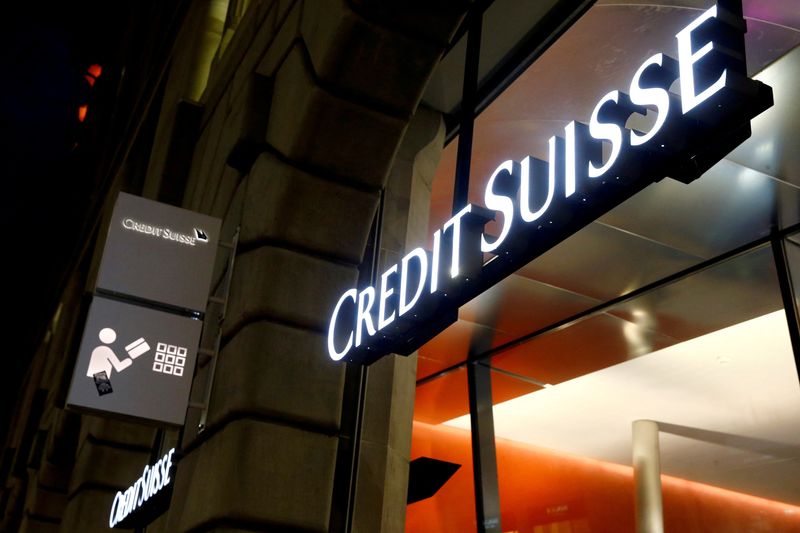By Brenna Hughes Neghaiwi
ZURICH (Reuters) - Credit Suisse is scrapping the negative interest rates it has charged wealthy Swiss clients since 2020, the lender said on Wednesday, as its economists anticipate a further rate hike in Switzerland this year.
"Despite the continued negative interest-rate environment, Credit Suisse will repeal the account balance fee and thus move away from using negative interest rates in Swiss francs as of July 1 for the private client business," the bank said in a statement.
In its first rate hike in 15 years, the Swiss National Bank (SNB) in June raised its policy interest rate to -0.25% from the -0.75% level it has deployed since 2015.
Governing board members have signalled further hikes may follow, spelling a potential end to the negative interest rates commercial banks have had to fork out to hold money at the SNB for the past seven years.
"The economists at Credit Suisse anticipate that the prime rate in Switzerland will be raised further over the course of the year," Credit Suisse said.
The move places Credit Suisse ahead of larger rival UBS in scrapping negative rates for clients. Several smaller banks, including Valiant, Vontobel and regional lender Aargau Kantonalbank, have already done so.
Commercial banks have come under pressure since the Swiss National Bank introduced negative rates in December 2014, soon cut further to a record low of -0.75%. That policy cost commercial banks 1.2 billion Swiss francs in 2015 to hold deposits above a certain threshold with the central bank.
Banks were at first reticent to pass these charges on to private customers, saying such a move could "trigger a bank run", but over time they began offloading more of these costs.
UBS in July 2019 announced it would begin imposing a 0.75% fee on wealthy clients with deposits above 2 million Swiss francs that November, a move soon followed by Credit Suisse.

UBS further lowered that threshold to 250,000 Swiss francs in 2021, as then-Swiss banking head Axel Lehmann -- now the chairman of Credit Suisse -- spoke of contending with negative interest rates "for years to come".
However, monetary policy conditions have quickly shifted in 2022 as central banks look to fight resurgent inflation, leading to a spate of rate rises in June.